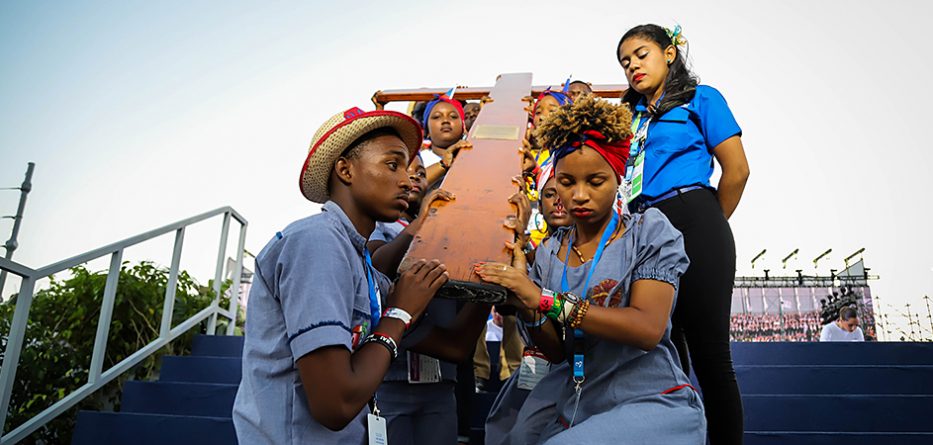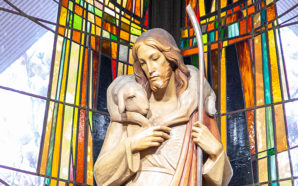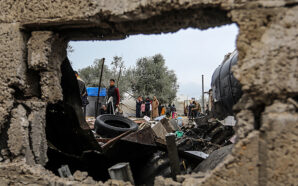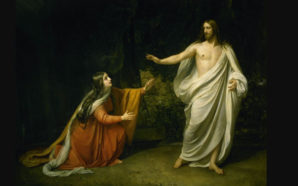Over the last few Saturdays, I have joined other disciples on the road to growing and sharing faith as we participated in the Saturday Sessions, an initiative of the Diocese of Parramatta’s Pastoral Planning Office in the time of COVID-19.
We have been gathering together in a virtual ‘upper room’ to share our thoughts and insights after watching a preselected talk. They have been very enriching encounters.
On May 16, we discussed Dr Carolyn Woo’s keynote address to the attendees of the 2018 Religious Education Congress (REC) in Los Angeles. She reflected on her experiences as they related to the theme of the REC that year – “Rise Up”.
I was privileged to have attended the REC in 2018 and had been present for the keynote address. There were a couple of things that resonated very deeply with me when I listened to her talk in 2018 and I found that these were the same things that spoke to me now. (I discovered this when I revisited my old notes after I reflected on her talk this time around.)
Carolyn shared many insights during her address. The most striking thought Carolyn shared was that each of us are the answer to someone else’s prayer. Sit with that statement for a moment and reflect upon it. Think about all the times your prayers were answered and made possible by the actions of others – family, friends or community.
This simple statement, more than any theology or doctrine or scriptural passage, is a call to action – it impels me to do something – to act. As you continue reading, I hope you see what I mean.
In her role as Director of Catholic Relief Services (CRS), Dr Woo met many people all over the world and listened to their stories. In this talk, she shared her many learnings over her time at CRS. One thing she spoke about was suffering. She asked us to acknowledge the fact that there is immense and profound suffering in the world. She then went on to draw a connection between the most striking instance of suffering and the suffering of millions around the world. She said that now when she gazes upon a crucifix, she sees the faces of those she has encountered along with Jesus’ visage because God is present in their suffering.
Too often we ignore the suffering of others because it overwhelms us. This is rather ironic because we willingly recall and commemorate the suffering of Christ every time we look upon a crucifix or cross.
Whilst talking about the crucifixion and the horrors of those 14 stations that we are so intimately familiar with, Carolyn reminds us that those atrocities were the culmination of events that took place much earlier – it began with the envy of the Pharisees, with the political machinations of Herod and Pilate. She went on to talk about how Christ is still being crucified today with those who suffer and that we are complicit in those sufferings. That took me aback but as she continued, I understood what she was saying. Suffering begins in the little things – those little things that don’t make us miss a beat. My silence and pettiness – that is where it begins. My continuing apathy leads to the current day crucifixion that is the human trafficking, slave labour, child labour, et cetera.
I stopped here for a while thinking about the repercussions of my inaction. Redirecting my focus to Dr Woo’s statement of being the answer to someone else’s prayer, I gradually moved on to thinking about the probable consequences of my future actions – the image that came to my mind was that of ripples spreading out in a lake.
The other thing that caught my attention was the word discernment.
We have all heard this word being used countless times over the last year as we have been preparing for Plenary 2020. Discernment is a newish concept for me. I first came across it when I started working at (then) Loyola Senior High School and participated in the First Spiritual Exercises. Six years later, I am still trying to understand the process of discernment. I like how Dr Woo explained the process: it is when we use the language of the heart; when we talk about our fears and joys. This explanation spoke to all of us at the Saturday Session and it made complete sense to me.
We do not use business language when we talk about relationships. True relationships are not formed on the basis of analysing the pros and cons. Relationships are connections. They are the glue that bind us all together no matter who we are or where we are. We are people of God and God is all about relationships.
Therefore, it stands to reason that we employ the vernacular of the heart to assist us in determining our path. One major insight that emerged from a participant at the Saturday Session was that “the language of fears and joys leaves us feeling vulnerable but therein lies the beauty because it leaves space for God and the Holy Spirit to work with us and through us”.
As a Christian, I am continually being called to work on my relationship with God. As a Christian, I am also called to see and acknowledge God in the other person. Am I able to see God in myself? Am I able to see myself as God sees me? Am I able to see God in the other person? Can I gaze upon the other and see them as God sees them?
If the answer to these questions is yes, and it has to be a resounding yes because that is the gift of God’s prodigal grace and mercy, then it naturally follows, as day follows night, that I have to do something for my fellow people. As Dr Woo says, we are beneficiaries of a very rich legacy of love, understanding, acceptance, imagination, and education. I have to pass on this gift because I am a link in the chain. The gift is given to me not to hoard but to pass on so that it multiplies and continues to enrich the lives of others as it has enriched mine.
Dr Woo’s presentation at this week’s Saturday Session came after the previous two week’s topics of joy and gratitude. Those conversations were rich and enlightening, but I was left pondering what does joy and gratitude mean and why does it matter to me as a Christian?
Dr Carolyn Woo tells me why it matters.
Annie Pinto is a parishioner of Mary, Queen of the Family Parish, Blacktown.
Saturday Sessions
Saturday Sessions is an initiative by the Pastoral Planning Office, Diocese of Parramatta. It offers online conversation and group sharing for anyone who has a desire to grow and share faith.
People are invited to come together to share thoughts in response to a video or audio piece that they have been given to watch or listen to prior to the conversation. A different speaker and topic is offered each week and offers a perspective on life and faith.
Participants are encouraged to take this initiative into faith communities as another way to be creative in love and respond to such a time as this. Contact Lisa at lisa.bright@parracatholic.org for information.








